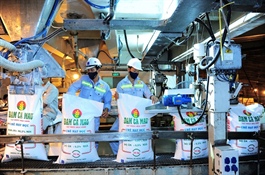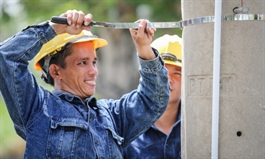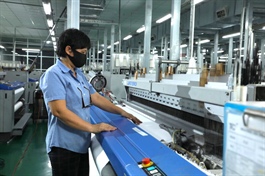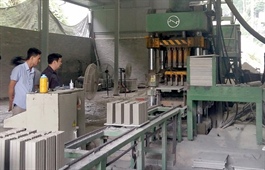Infrastructure construction of industrial clusters faces difficulties
Infrastructure construction of industrial clusters faces difficulties
In order to be proactive in management and to shorten the time required to handle administrative procedures in industrial cluster (IC) development, leaders of the Binh Phuoc Provincial People's Committee have proposed decentralizing some powers to localities.
In 2020, Binh Phuoc established seven ICs, but completion of investment procedures and implementation of IC infrastructure construction in the province are facing many difficulties. These stem from long appraisal and approval processes by state agencies according to current regulations and complex site clearance procedures because most IC areas are located on land used by the Vietnam Rubber Group, with clearance requiring liquidation of rubber trees.
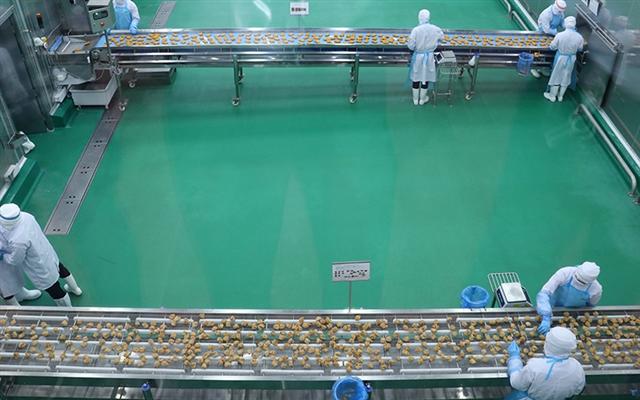
ICs meet the production needs of rural industrial establishments
|
In addition, calls for secondary investors in ICs are facing hurdles as manufacturing enterprises are concerned they will lack labor when entering ICs. Most rural industrial enterprises are small and medium-sized, often making use of residential premises for production. In ICs, they must invest capital in factories and other equipment.
To overcome the above difficulties, Binh Phuoc has rapidly built its IC development planning. Apart from general policies from the state, the province has also issued a support program on building IC technical infrastructure in the province in the 2021-2025 period with total capital of VND394 billion, focusing on investment in water supply, drainage and waste treatment systems; electrical systems in ICs; and public lighting systems.
To avoid wasting funding, the provincial people's committee stipulates that beneficiaries are on the planning list, that they have sufficient land documents as prescribed as well as approved detailed planning, technical designs and work cost estimates. The province also focuses on funding infrastructure investment and completion of rural ICs and craft village clusters.
Binh Phuoc has also issued policies to support production and business for rural industrial enterprises, such as supporting over 40 percent of industrial small and medium-sized enterprises (SMEs) in accessing production premises in rural ICs and craft village clusters; increasing the number of industrial SMEs implementing technological innovation by an average of 10 percent per year; and improving business administration capacity for business owners and managers.
Vice Chair of the Binh Phuoc Provincial People's Committee Tran Van Mi said that to facilitate management of the ICs, the province should be decentralized to be more proactive in shortening time for handling administrative procedures, thereby making it more attractive to investors in the local ICs.
|
The early planning and promulgation of support policies on IC development has helped Binh Phuoc accelerate completion of its IC infrastructure, partly meeting the demand for production premises of ruralindustrial enterprises. |









